11/18 Torchbearer Weekly Policy Update
Thank you for letting us be your trusted source for local, state, and federal policy updates. Let’s dig in…
- Trump Tariff Fears Prompt Supply Chain Scramble
- Indiana “Seals” New Diploma Type
- Indiana Budget Hearings Begin
- Indiana Health Care Costs Analyzed
- Holcomb’s Middle East Economic Trip
- Share the Torchbearer Newsletter with Your Network!
- Important Dates
Trump Tariff Fears Prompt Supply Chain Scramble
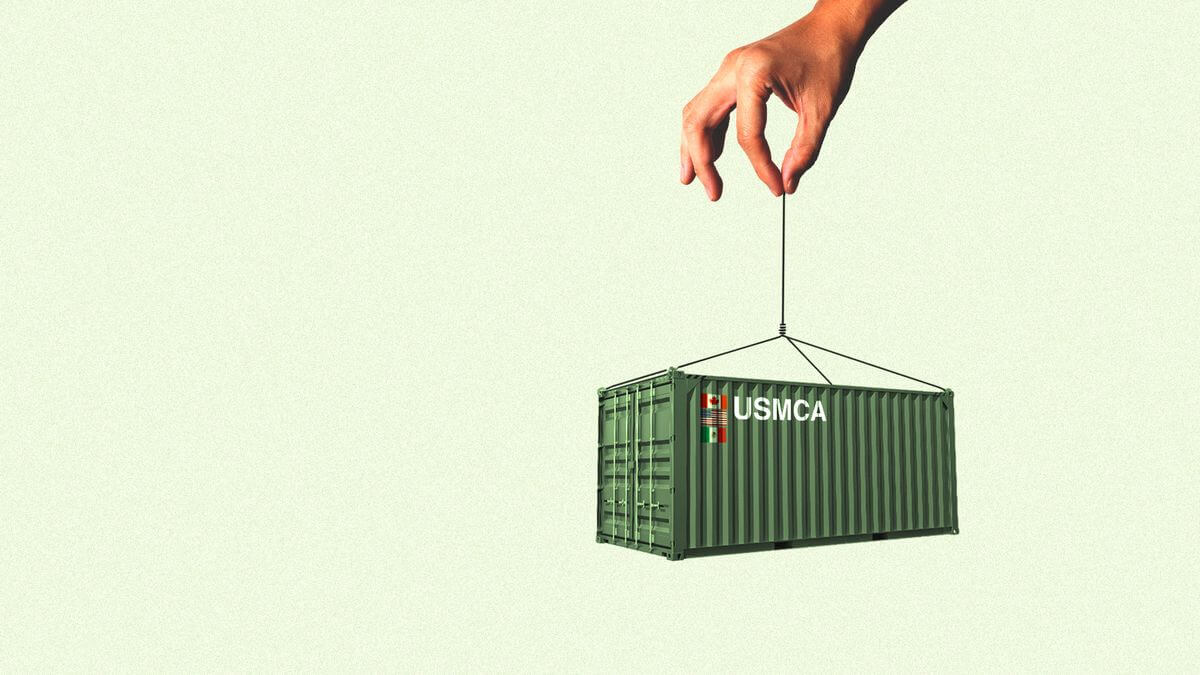
Companies are scrambling to shift production out of China, bolster inventory and weigh price increases as they brace for tariff hikes from a second Trump administration.
Why it matters: Trump has threatened to ramp up duties on China, Mexico and possibly elsewhere, increasing the cost of importing products from those countries for U.S. businesses.
State of play: Companies that source products from China are moving quickly to get out.
- "I've already started to see some volume from China shifted to Vietnam," Justin Kim, an account executive at freight company OEC Group New York, tells Axios.
- "And this is with not just one vendor but multiple vendors." Companies that make linens, bath towels and pillow cases are among the first to move production out of China, he said.
Last week, fashion company Steve Madden revealed that it plans to slash China-made products by 40% to 45% in a shift toward other countries — though not the U.S. — to avoid coming tariff hikes.
The big question: How much of the cost of increased tariffs will companies pass along to consumers in the form of price hikes?
- Toyota executive David Christ told the Automotive Press Association last week that tariff hikes could lead to price increases, Forbes reported.
- AutoZone CEO Philip Daniele in September said they would pass the costs on if tariffs hit, and Stanley Black & Decker chief Donald Allan Jr. said the same last month.
Friction point: Unlike during the first Trump administration's tariffs, Americans are reeling from a bruising battle with inflation — with many consumer goods companies reporting that customers are pushing back on price hikes.
- Such pushback could limit business' ability to pass along the costs of increase tariffs to consumers, though some may feel like they have no choice but to do so to preserve their profitability.
The intrigue: EV maker Rivian negotiated contracts that would stick its suppliers with the cost of increased tariffs, CEO RJ Scaringe said Thursday on an earnings call. But the company has also been looking to avoid tariffs :
- "A lot of our focus has been on sourcing suppliers that are not going to be subject to large tariffs."
Zoom out: Many companies have taken steps to diversify their supply chains after pandemic disruption caused widespread shortages and price increases.
- Joe Kudla, CEO of American clothing brand Vuori, tells Axios Pro: Retail Deals co-author Richard Collings that the company was already building a more nimble supply chain, sourcing production from multiple countries.
- Vuori gets items from countries such as Vietnam, Sri Lanka and Turkey, he said.
Yes, but: Shifting production out of China or Mexico won't necessarily be easy for companies that have made big investments there, such as automakers that have sprawling plants in both countries.
- "At some point we're going to start to run out of real estate of where we can source goods from," OEC's Kim says. "Vietnam doesn't have nearly the infrastructure that China does. And while India is growing significantly, I don't think that they'd be able to take the full demand that we have from China and Mexico."
Instead, companies may turn to other strategies — such as the upfront acquisition of additional inventory before tariffs hit.
- At Lifetime Brands, which owns KitchenAid and Farberware, executives "have taken defensive operational measures and increased inventory levels to protect against the potential for increased tariffs," CEO Robert Kay said Friday on an earnings call.
- That means the company has had to spend more in the immediate term than it otherwise would've, he said, but "we are comfortable with holding a higher level of inventory as a hedge against the material impact from potential tariffs."
The bottom line: Businesses aren't waiting for higher tariffs to take action. (Axios)
Indiana “Seals” Newest Diploma Type

Indiana is on track to introduce a new high school diploma system, seals, set to debut with the class of 2029.
Why it matters: The new diploma aims to better prepare students for careers by promoting work-based learning, aligning with state law requirements for education reform.
Breaking it Down: A 2023 law mandates the State Board of Education to finalize new rules by year-end. The latest draft resembles current graduation requirements but introduces seals for college, job, or military readiness instead of multiple diploma types.
On the Other Hand: Some parents and educators still have concerns about the plan. The Indiana State Teachers Association wrote in a recent public memo that the timeline is “too aggressive, not allowing districts adequate time to prepare and align their curricula, staff and resources.”
What’s next: The State Board of Education will vote on the new design on Dec. 11.
- Schools may adopt the changes next school year, with full implementation required by 2029. (WFYI)
Indiana Budget Hearings Begin
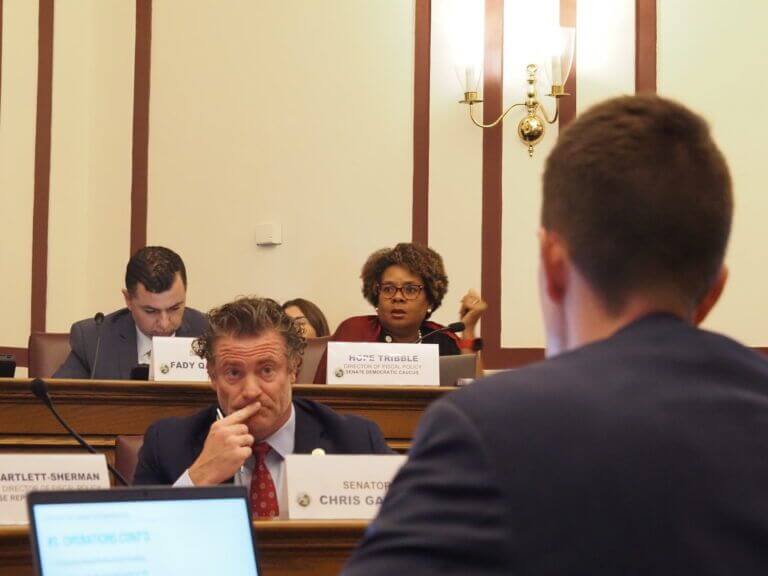
Indiana’s State Budget Committee has launched hearings for the upcoming 2026-2027 fiscal years, with a focus on a $40 billion-plus biennial budget.
Why it matters: The hearings set the stage for critical budget allocations, impacting areas like public safety, education, and technology across the state.
Breaking it Down: Chief Justice Loretta Rush is advocating for additional funds for a statewide jail management system and security measures, while other agencies request increased funding for salaries and technology.
Adding to Context: Appeals Court Judge Paul Felix asked lawmakers for money to expand the court’s “Appeals on Wheels” traveling oral arguments program, increase salaries and keep up with information technology costs.
Furthermore: Treasurer Daniel Elliott, however, asked lawmakers to consider doubling his office’s allotment for education scholarship account (ESA) from $10 million to $20 million.
- Families can use the scholarships to pay for educational programs, therapies, services and more for their disabled children and non-disabled siblings.
- There are 600 children on the waitlist for this program.
What’s next: The committee will continue to hear requests, with an initial budget proposal expected in January.
- Lawmakers aim to address both immediate needs and long-term strategic goals. (Indiana Capital Chronicle)
Indiana’s Health Care Costs Analyzed
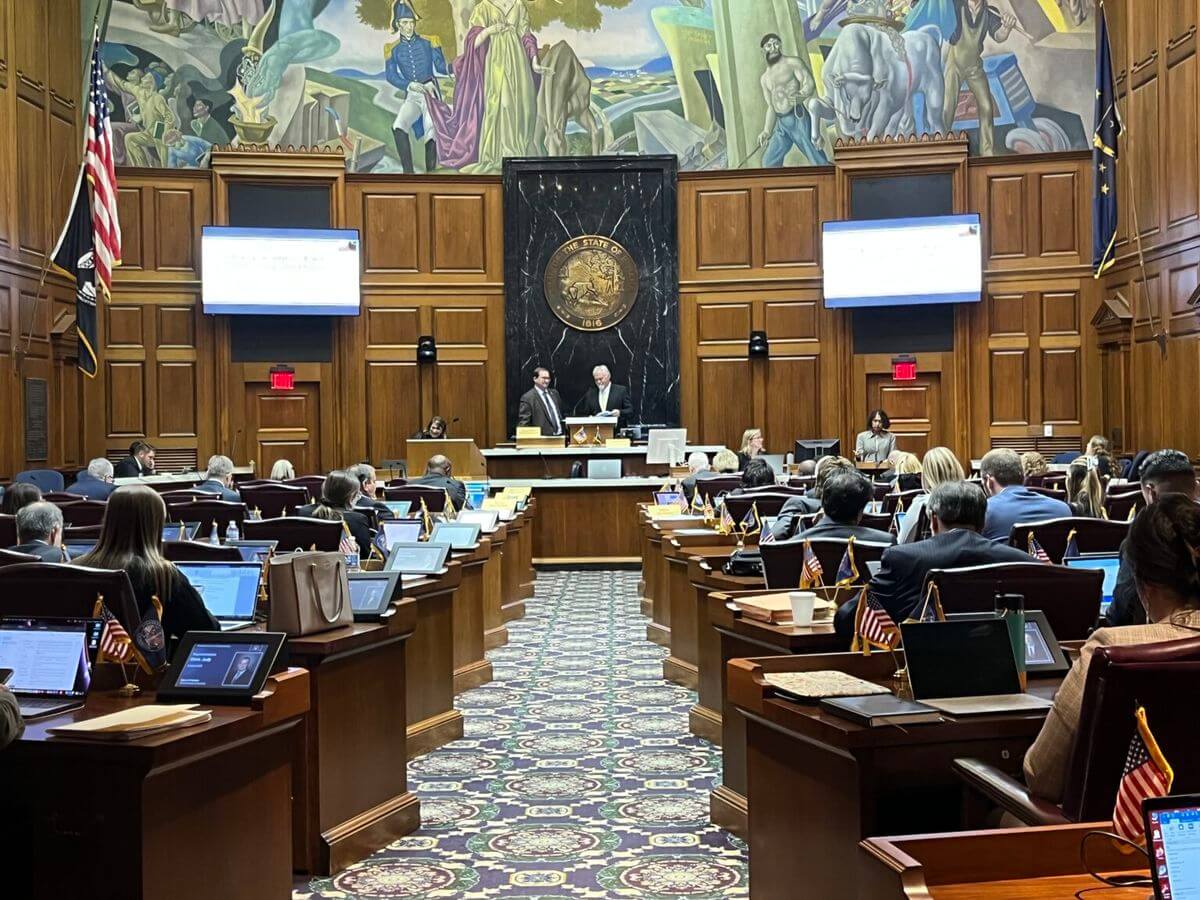
A new Indiana University study reveals that while health care spending in Indiana aligns with other states, high-deductible and self-insured plans contribute to higher prices.
Why it matters: Understanding the unique factors influencing Indiana’s health care costs can guide policy reforms aimed at reducing expenses for Hoosiers. High-deductible plans and self-insured plans often lead to higher out-of-pocket expenses, impacting affordability and access to care.
Breaking it Down: Hoosiers are 20% more likely to be in self-insured plans, which struggle to negotiate lower prices.
- Additionally, 64% are enrolled in high-deductible plans, which have surged by 23% since 2020.
- These plans lack the market power to effectively negotiate with hospitals, leading to elevated costs.
The big picture: Despite similar per-capita health spending to national averages, Indiana faces challenges with higher mortality rates and negative health outcomes, such as smoking and chronic illnesses. The state also has fewer physicians compared to the national average, exacerbating health care access issues.
- What’s next: As Indiana approaches the 2025 legislative session, policymakers will consider the study’s findings to push for transparency and potentially reform health care pricing strategies.
- The focus will be on increasing transparency, adopting value-based care models, and addressing the dominance of self-insured plans to improve healthcare affordability and outcomes. (Indiana Capital Chronicle)
Holcomb’s Middle East Economic Mission
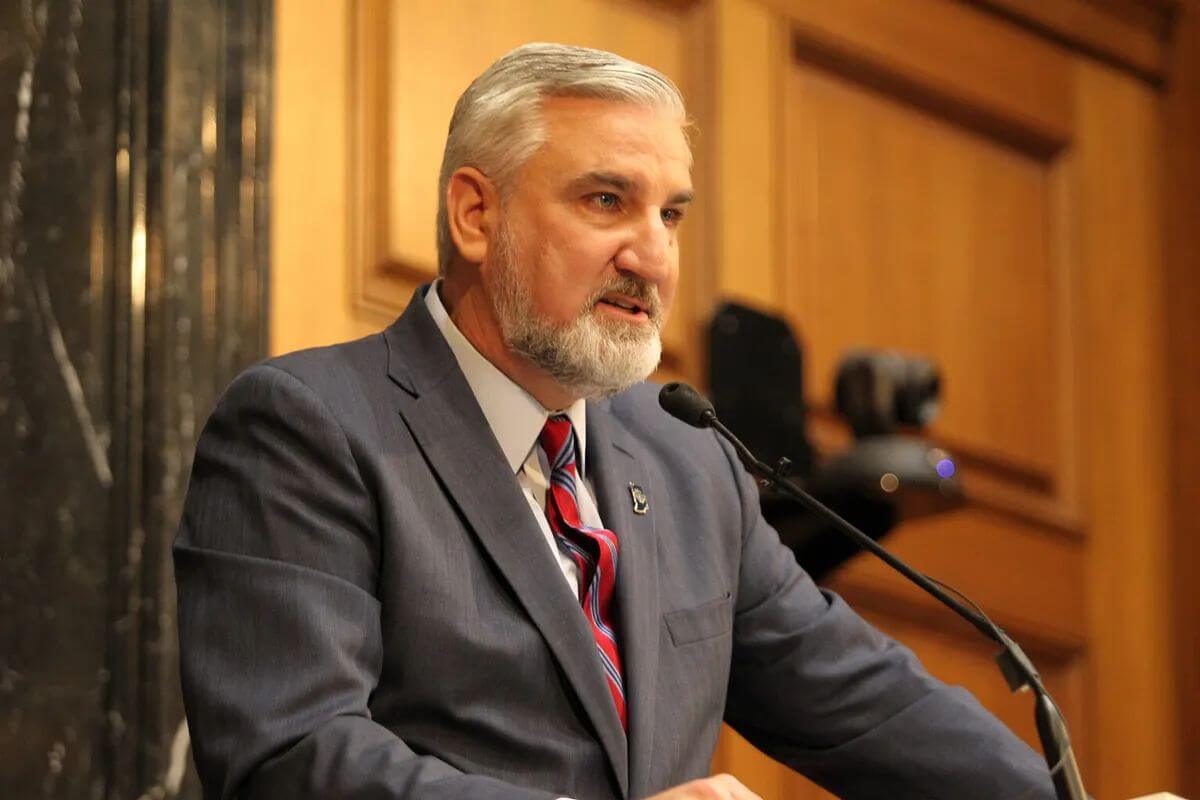
Indiana Governor Eric Holcomb embarks on his 27th and final international economic development trip as governor, targeting key growth sectors in Saudi Arabia and Kuwait, including defense, life sciences, and sports innovation.
Why it matters: This mission underscores Indiana’s commitment to expanding its global economic footprint, leveraging strategic partnerships to enhance the state’s economic vitality. Holcomb’s initiative aims to position Indiana as a central player in international markets, fostering innovation and job creation.
Breaking it Down: Governor Holcomb, joined by Maj. Gen. Dale Lyles and representatives from the Indiana Economic Development Corp. and the Indiana National Guard, will meet with senior officials in Riyadh.
- Discussions will focus on broadening cultural and economic ties, enhancing Indiana’s strategic industries.
- Holcomb will also engage with Hoosier families at the U.S. Embassy and visit Indiana-based Zimmer Biomet’s facility in Riyadh, highlighting the state’s significant business presence in the region.
The big picture: Indiana and Saudi Arabia exchanged $418 million worth of goods in 2023, with shared interests in industries like plastics and chemicals.
- The state hosts Saudi-owned businesses such as Gas Equipment Co. and SABIC Innovative Plastics, underscoring a robust economic relationship.
- The visit to Diriyah aims to explore tourism and cultural development opportunities, further solidifying bilateral cooperation.
What’s next: In Kuwait, the delegation will visit a U.S. military base where Hoosier soldiers are stationed, emphasizing Indiana’s defense ties.
- Holcomb will meet with Ambassador Karen Sasahara in Kuwait City and lead a roundtable with stakeholders in advanced manufacturing, life sciences, defense, and agricultural bioscience.
- This mission seeks to drive sectoral growth and innovation, with travel costs covered by private donations to the Indiana Economic Development Foundation. (IBJ)
Share the Torchbearer Newsletter with Your Network!
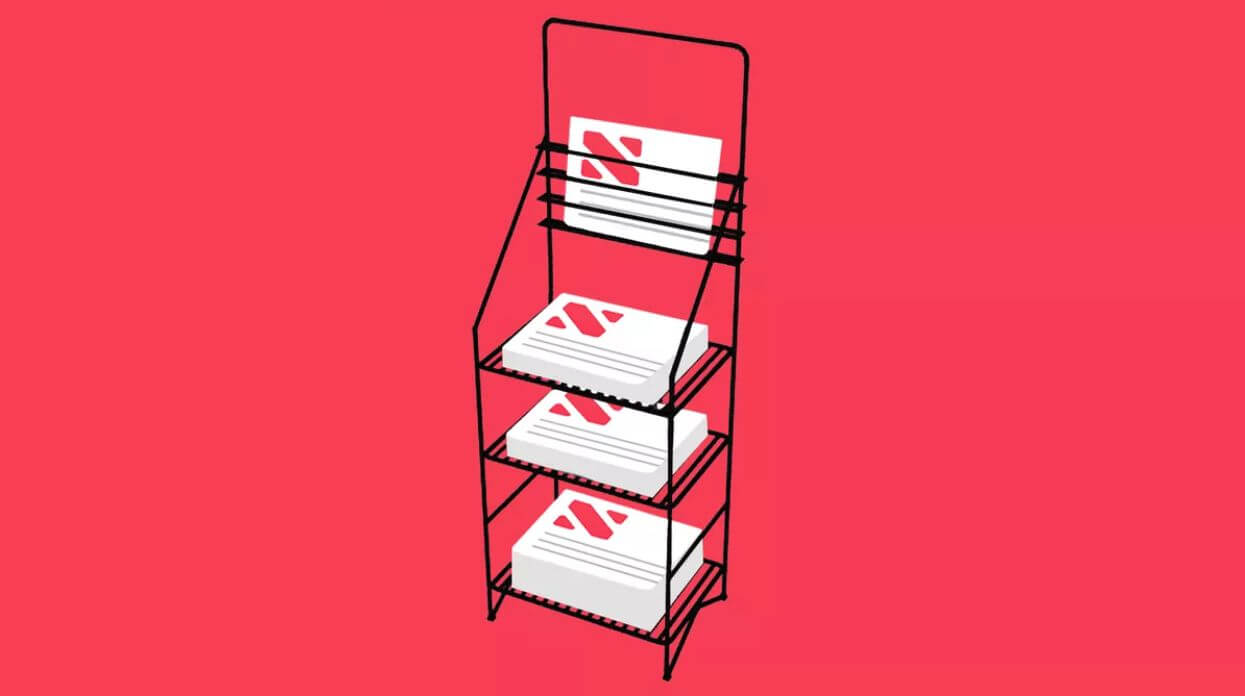
Not signed up for our weekly newsletter? Sign up today!
Important Dates:

- Organization Day: Tuesday, November 19th
- State and Local Tax Review Task Force - Wednesday, November 20th, 2 pm
